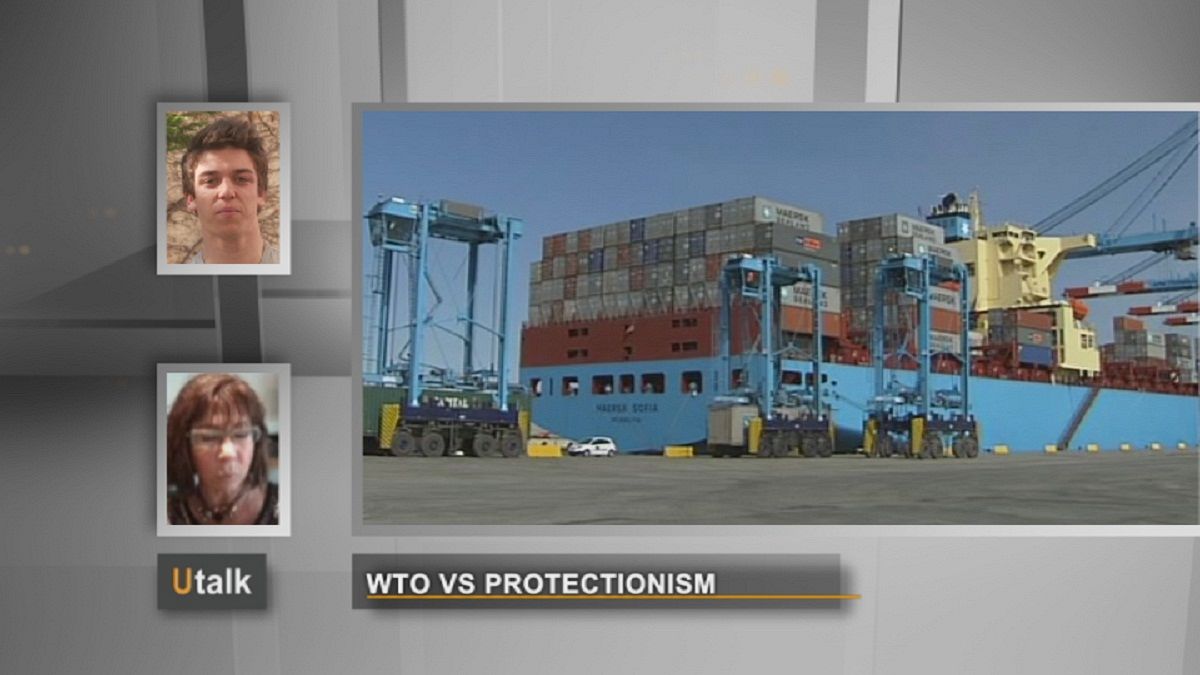With ISEG
In this edition of U-talk, Benjamin, from Saint-Etienne, in France, asks: “Could Europe implement protectionist policies and still conform to World Trade Organisation rules?”
Viviane de Beaufort, at the European Centre for Law and Economics, responds: “The idea of Europe-wide economic protectionism is an economic aberration and a legal impossibility. But there is room for manoeuvre, to pull some levers and try to restore conditions that would make competition fairer.
“Protectionism would be an economic aberration because the Internal Market, otherwise referred to as Europe, has developed over years because it is an open market. Europe needs to stay open because it is dependent on some crucial imports, not only its raw materials and its energy supply but also investments.
“When you look at exports the big French companies, big European companies and small and medium-sized German companies live by their exports. External markets are their livelihood. So, closing the market is just suicide.
“Legally speaking, we are all partners, ever since the General Agreement on Tariffs and Trade, and then the World Trade Organisation, which means respecting rules. However, the phenomenon of globalisation with the rise of emerging economies, the evident continuation of the dominance of the American dollar and the competitive devaluation of China’s currency - all put us in difficult competitive circumstances.
“So, what can Europe do? We have some legal instruments, such as the principle of community preference, which we don’t use often enough. That means, when a product is the same, taking it from Germany or Poland, and not China.
“There are legal tools we can work on which are acceptable to the World Trade Organisation. Then there’s the question of counterfeiting, the fight against faked goods, the question of fighting against subsidising. Because when companies in third countries are subsidised they can dump their goods in our markets at below production cost here with no problem.
“There’s also the question of opening up international public sector markets, and the question of laws on direct international investments. In a nutshell, there is room to manoeuvre, but not through protectionism – our companies must be made more competitive.
“How can we give them a boost? That is the number one question for industrial policy – at the European level, and not the national level.
“It’s about investing in research and development, about clustering – geographic concentration of interconnected businesses, suppliers, and institutions in a particular field, about intellectual property law.
“And it’s about finally adopting a common European patent, after 20 years of various efforts. Europe still has to work on that.”
If you would also like to ask a question on U-talk, click on the button below.
